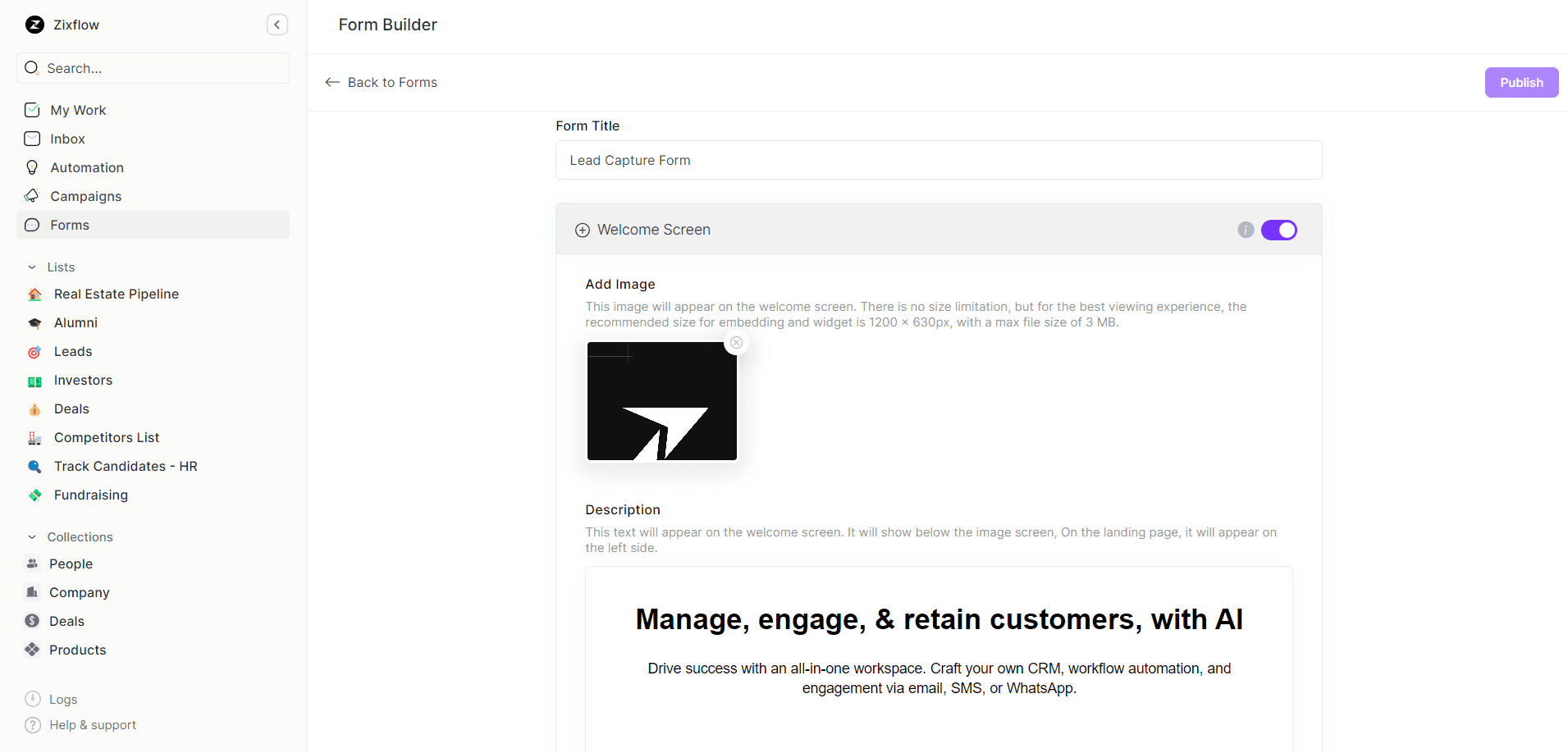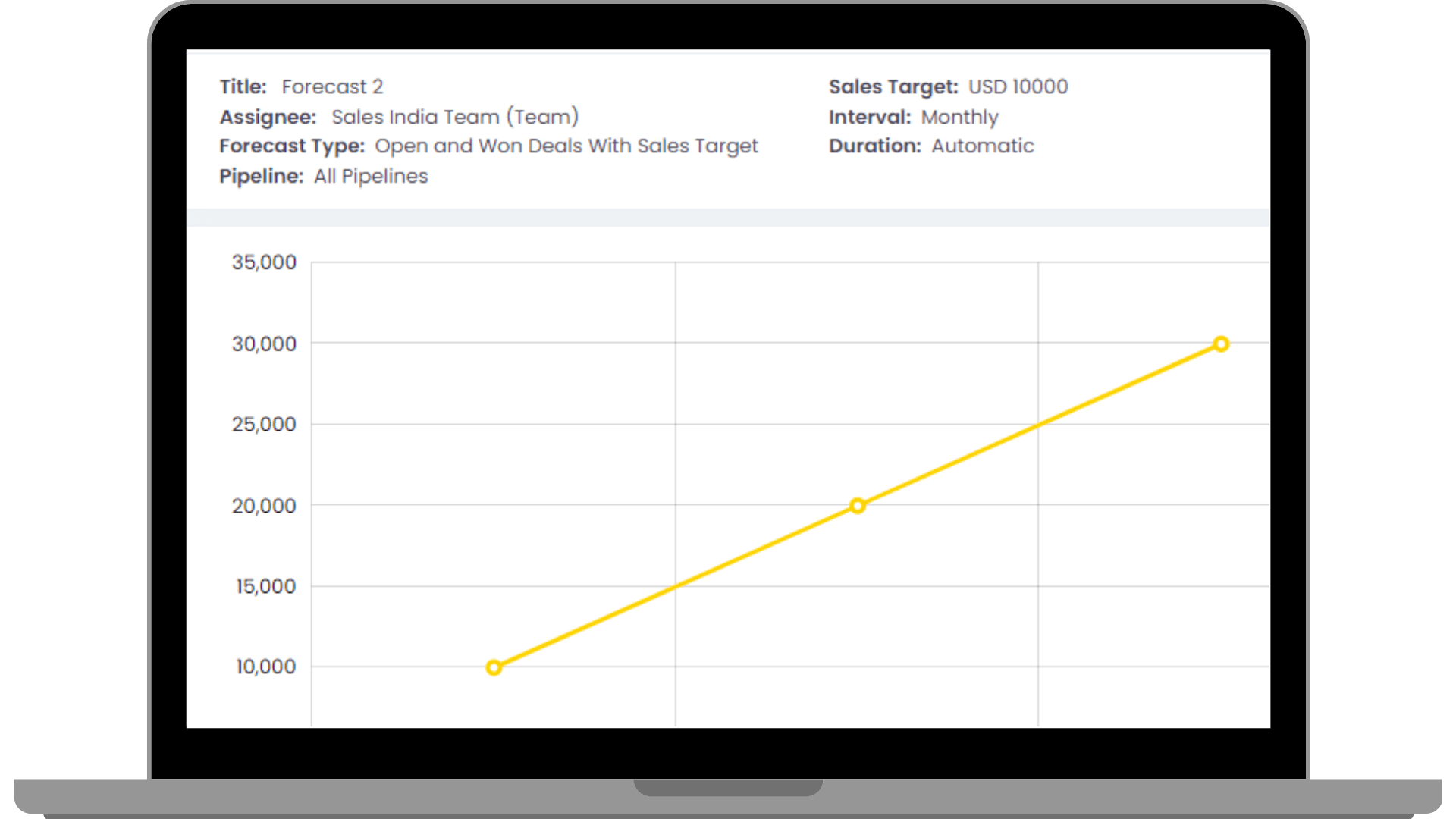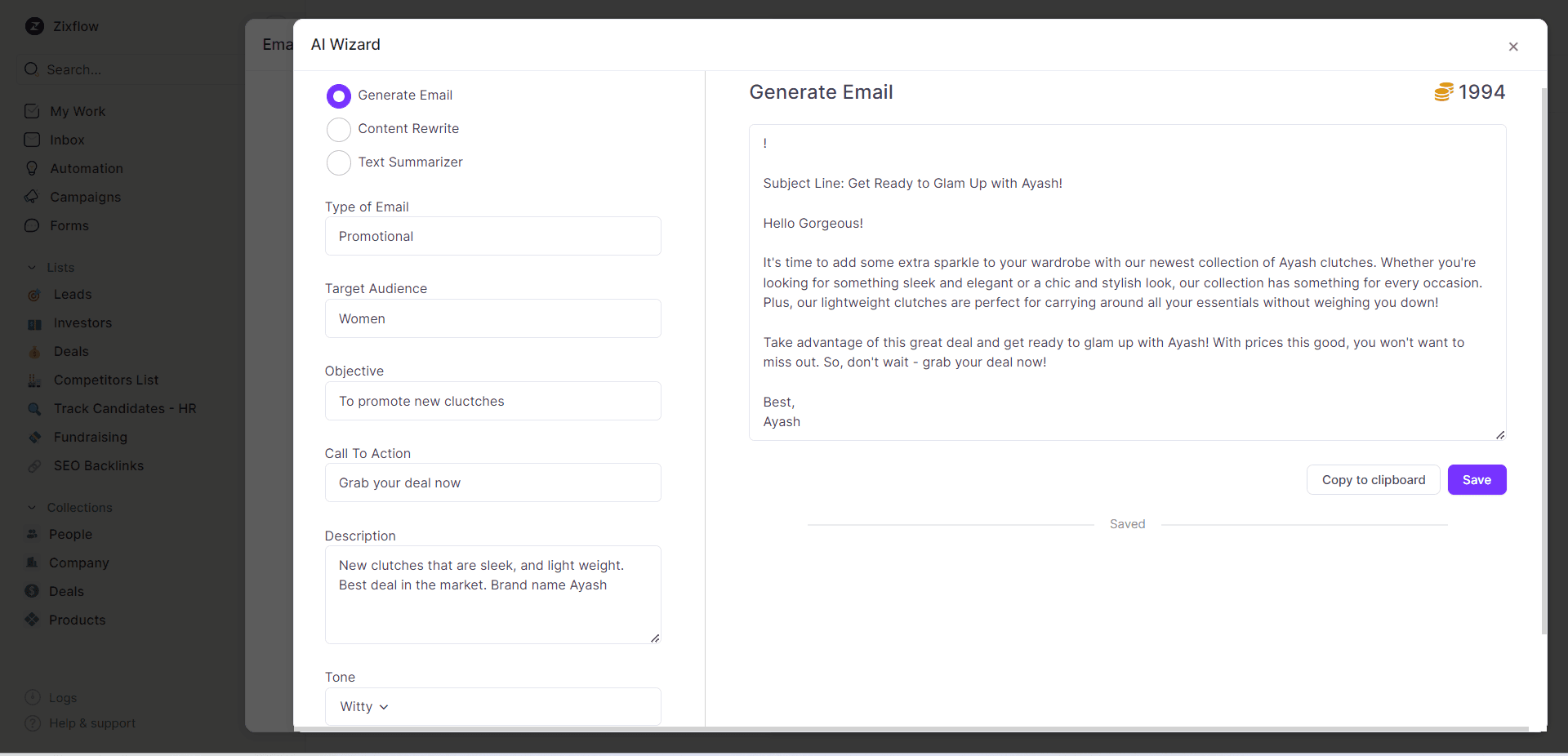10 Ways You Can Use AI in Sales & Boost Your Business Growth

Tired of manual sales practices!
In the ever-evolving world of sales, staying ahead of the competition requires innovation and adaptability.
One technology that has emerged as a game-changer in recent years is Artificial Intelligence (AI).
With its ability to analyze vast amounts of data, identify patterns, and make intelligent predictions, AI has transformed the sales landscape, empowering businesses to supercharge their strategies and drive remarkable sales engagement and growth.
In this blog, we delve into the exciting realm of AI and explore how you can harness its power to revolutionize your sales processes, enhance customer engagement, and propel your business to new heights.
Join us as we unveil the secrets of leveraging AI in sales and embark on a journey towards unprecedented success.
What is AI?
AI, or Artificial Intelligence, is the simulation of human intelligence in machines that are programmed to think and learn like humans. It encompasses a broad range of techniques and algorithms that enable computers to perform tasks that typically require human intelligence, such as problem-solving, decision-making, language understanding, and pattern recognition.
Have you ever used Siri or Alexa?
I am sure your answer will be yes.
But how do Siri or Alexa recognize and understand human voice?
It is through natural language processing (NLP), an AI, which enables computers to understand and interpret human language. Virtual assistants like Siri or Amazon's Alexa utilize NLP to process and respond to voice commands, provide information, and perform various tasks based on the user's input.
How can you use AI in sales?
Now you can improve your sales engagement and growth by leveraging AI. Here are the few ways how you can do so:
Lead generation and qualification
AI can streamline your lead generation and qualification processes in sales by providing valuable insights, automating repetitive tasks, and enabling sales teams to focus their efforts on high-potential leads.
By leveraging AI technologies, you can enhance productivity, improve customer targeting, and drive higher conversion rates. Here are a few ways you can utilize AI in your lead nurturing tools to close more deals:
Automated lead scoring
AI algorithms can analyze and score leads based on various attributes, such as demographics, online behavior, past interactions, and firmographics. This will enable you to prioritize leads based on their likelihood to convert, ensuring they focus their efforts on high-potential prospects.
For example, AI-powered lead scoring software can assign scores to leads based on their engagement levels, purchase history, and similarity to existing high-value customers.
Natural language processing (NLP) for lead qualification
Have we discussed NLP while talking about Alexa?
You can employ NLP techniques to analyze and extract valuable information from unstructured data sources, such as emails, social media posts, and customer reviews.
AI can process this data to understand customer sentiments, identify potential leads, and assess their qualification criteria.
For instance, AI-powered Leadbot of Zixflow can engage with potential customers, ask qualifying questions, and provide initial information, thereby filtering out unqualified leads and saving your valuable time.

Sales forecasting
AI can be a valuable tool in sales forecasting, enabling organizations to make more accurate predictions and improve sales efficiency. Here are a few ways AI can be utilized for sales forecasting:
Data Analysis and Pattern Recognition
AI algorithms can analyze vast amounts of historical sales data, market trends, and external factors to identify patterns and correlations.
By recognizing patterns in sales performance, AI can generate forecasts based on historical patterns, seasonality, and other relevant factors.

Sales Pipeline Analysis
AI can analyze your sales pipeline and provide insights into the likelihood of deals closing at each stage. By considering historical data and patterns, AI can help you identify potential bottlenecks, evaluate conversion rates, and estimate the expected revenue from the existing pipeline.
Customer segmentation
The use of AI for customer segmentation allows you to gain deeper insights into their customer base, enabling personalized marketing strategies, improved customer experiences, and targeted offerings.
By leveraging AI's ability to process vast amounts of data and identify complex patterns, you can refine your marketing efforts, enhance customer engagement, and drive customer centric selling.
AI algorithms can analyze large volumes of customer data, including demographics, purchase history, online behavior, and interaction patterns.
By applying clustering techniques, you can automatically group customers into segments based on similarities and differences.
For example, an e-commerce company may use AI to cluster customers into segments such as frequent buyers, price-sensitive customers, or first-time purchasers.
Sales predictive analytics
AI can be used for sales predictive analytics by leveraging historical sales data, customer information, and external factors to forecast future sales trends and outcomes. AI might use small language models (SLMs) when dealing with these complex datasets because they require fast, accurate interpretation. Here's a step-by-step guide of how you can do so:
Data Collection and Integration
First of all, you have to gather relevant data from various sources, such as the CRM system of your organization, sales transactions, customer interactions, marketing campaigns, and market data. This data may include attributes like customer demographics, purchase history, sales pipeline stages, lead sources, pricing, and promotional activities.
Data Preprocessing and Cleaning
Then, clean and preprocess the collected data to remove duplicates, handle missing values, and ensure data consistency. Data preprocessing may also involve transforming and standardizing variables for analysis purposes.
Feature Engineering
Finally, extract meaningful features from the collected data that can potentially impact sales outcomes. For example, features could include customer lifetime value, purchase frequency, average deal size, or lead source effectiveness. Additionally,you can also consider external factors like economic indicators, market trends, or competitor information as features.
Virtual sales assistants and chatbots
Implement AI-powered chatbots on your website for lead generation in real-time. These virtual sales assistants can answer common queries, provide product information, and assist customers throughout their purchasing journey.
For instance, you can deploy an AI-driven chat bot that greets website visitors, helps them navigate the product catalog, provides recommendations based on their preferences, and offers support for order tracking and returns. The chatbot's 24/7 availability and instant responses enhance customer satisfaction and drive sales conversions.

Dynamic pricing optimization
By leveraging AI for dynamic pricing optimization, you can maximize revenue, improve pricing strategies, enhance customer satisfaction, and streamline pricing-related interactions.
AI enables your businesses to adapt pricing in response to market dynamics, provide personalized pricing experiences, and automate pricing inquiries and negotiations. Ultimately, this drives business growth by optimizing sales engagement queue and workflow.
Implement AI algorithms to analyze various factors, including demand, competitor pricing, market trends, and customer behavior, to dynamically adjust prices in real-time. AI can identify optimal pricing points and dynamically update prices to capture maximum value based on demand fluctuations and market conditions.
For example, an corporate travel booking platform can use AI for dynamic pricing optimization. The AI system continuously monitors factors such as booking trends, seasonality, flight availability, and competitor prices. Based on this information, it adjusts prices in real-time to attract more customers during low-demand periods, maximize revenue during peak seasons, and respond to competitive market conditions.
Sales performance analysis
Practically, AI can be used for sales performance analysis to boost business growth by providing insights, identifying trends, and optimizing sales strategies to improve sales process.
Here's an example of how you can apply AI in this context:
Data collection and integration
AI can help you gather relevant sales data from various sources, such as CRM systems, sales transactions, customer interactions, and marketing campaigns. This data may include attributes like revenue, sales activities, customer demographics, lead sources, and product performance.
For instance, an electronics retailer collects data on sales revenue, customer demographics, and product performance from its CRM system, point-of-sale systems, and marketing platforms.
Data preprocessing and cleaning
You can also use AI to clean and preprocess the collected data to remove duplicates, handle missing values, and ensure data consistency. Data preprocessing may also involve transforming and standardizing variables for analysis purposes.
For example, the retailer cleans the sales data by removing duplicate entries, filling in missing values, and standardizing customer demographics..
Sales process automation
By leveraging AI for sales engagement, you can streamline operations, improve sales efficiency, and drive business growth.
AI-powered automation eliminates manual tasks, enables personalization at scale, and provides valuable insights that empower sales teams to focus on building relationships, closing deals, and driving revenue.

Sales Process Optimization
AI can automate and optimize various stages of the sales process, such as lead nurturing, email outreach, and follow-ups. By leveraging machine learning algorithms, AI can analyze customer interactions, response patterns, and sales data to determine the most effective sales strategies and automate routine tasks, freeing up sales teams' time for higher-value activities.
You can use AI Wizard of Zixflow to optimize your content writing for sales pitches and emails.
Sales Performance Analytics
AI can also provide you real-time insights into sales performance by analyzing data from various sources, including CRM systems, sales pipelines, and customer interactions. AI-powered analytics tools can identify performance gaps, track key metrics, and provide actionable insights to help sales teams make data-driven decisions and improve performance.
Customer churn prediction
Customer churn prediction is the process of using data analysis and predictive modeling techniques to forecast or identify customers who are at risk of discontinuing their relationship with a business using sales automation techniques.
You can use AI for customer churn prediction to boost business growth by identifying customers who are at risk of leaving and allowing businesses to take proactive measures to retain them.
Example: A subscription-based streaming service collects data on customer demographics, subscription plans, viewing history, and customer support interactions from its CRM system and user activity logs using AI.
Sales chat analytics
You can also use AI for sales chat analytics to boost business growth by analyzing customer conversations and extracting valuable insights to enhance sales strategies, improve customer experience, and drive revenue.
For example, an e-commerce company can collect chat data from its website's live chat feature, where customers engage with sales representatives to inquire about products, ask for recommendations, or seek assistance with the purchasing process. Then, using the best AI apps, it can analyze those data and see the average customer responses.
Boost your growth with AI
The potential of Artificial Intelligence (AI) in revolutionizing sales and driving business growth is truly remarkable. By leveraging AI-powered sales analytics, your business can gain valuable insights into customer preferences, optimize sales processes, and personalize interactions, ultimately leading to improved customer satisfaction and retention.
AI-driven sales forecasting empowers businesses to make informed decisions, allocate resources effectively, and stay ahead of market trends. Virtual sales assistants and chatbots offer round-the-clock support, seamless customer interactions, and enhanced lead qualification and engagement.
The possibilities are endless when it comes to leveraging AI in sales. By embracing these technologies, businesses can transform their sales processes, improve efficiency, and achieve significant business growth. However, you have to use one of the AI-powered sales engagement platforms to automate your business requirements.Why not give a try to Zixflow, where you can automate most of your tasks using its AI wizard, sales cadence, and leadbot.
As AI continues to evolve, it is becoming increasingly clear that its impact on sales and business growth is here to stay. By staying informed, adapting to new technologies, and embracing AI in sales, your business can position itself as a leader in the digital age, unlocking new avenues of success, and propelling growth to unprecedented heights.
So, what are you waiting for?
Embrace AI, unlock its potential, and embark on an exciting journey toward driving sales success and boosting your business growth.
Remember, the future of sales is here, and it's powered by Artificial Intelligence.
